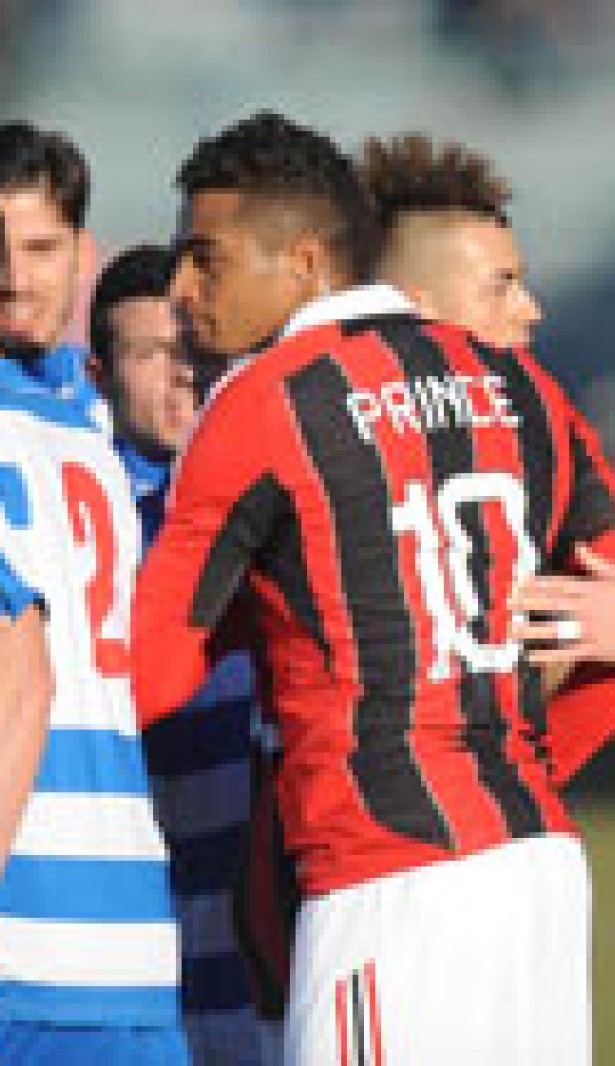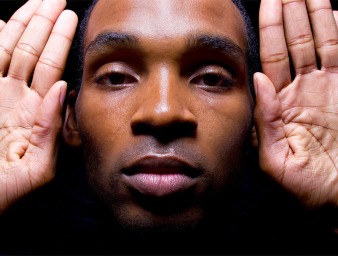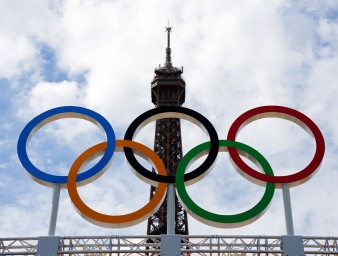Time to kick racism out of football
22 March 2013

“The world continues to witness deeply unpleasant acts during sporting events, including during football matches. They have included insults, offensive chants, Nazi salutes, petitions against hiring certain players and even systematic denial of opportunities to play or to join football teams based on colour or nationality. These deplorable acts of bigotry and prejudice have no place in the 21st century. They are an affront to human rights”, said the UN High Commissioner for Human Rights, Navi Pillay, at a panel discussion on racism in sport where renowned professional footballers, football governing bodies and experts shared their experience and views racism in football and ways in which sport, and in particular football, can be used to combat racism and racial discrimination.
“Sport at its best is inclusive, generous-hearted and fundamentally multicultural, based on values such as teamwork, loyalty, merit and self-control”, Pillay added at the event organized by her office in commemoration of the International Day for the Elimination of Racial Discrimination celebrated every year on 21 March.
Racism in the football field
“I tried to ignore racism. Similarly to a headache that you know will go away if you just wait long enough. But that is a misconception. Racism does not go away. If we don´t confront it, it will spread. We have to confront racism and combat it”, said Kevin-Prince Boateng, professional football player who led his AC Milan Team off the playing field to protest against racist chants during a friendly match with the Pro Patria football club, in Busto Arsizio, near Milan, Italy, on 3 January 2013.
When asked about the incident, Boateng replied “In this moment it was the right thing to do”, adding “I hope I will never have to do it again … No player should decide to walk off, the referee should do that … They should stop the game when they hear racist chants”.
“It was courageous of Prince to do that, which is why football players have supported him, said Patrick Vieira, ex-French international footballer and Football Development Executive at Manchester City Football Club. “What is happening today presents a great opportunity to tackle racism in football”, he added.
“The time to kick the bigotry out of football is NOW. We have an opportunity to make the Pro Patria incident a key moment in the struggle against racism in sport”, Pillay declared after underlining that incidents at sporting events, and football in particular, were extremely damaging given the important role that professional athletes, and sporting events, play in inspiring children.
Referees are instructed to react when they witness acts of racism and racial discrimination, reminded Federico Addiechi, on behalf of Sepp Blatter, President of FIFA (Federation of International Football Associations), the organization that oversees international football. “We at FIFA supported Kevin-Prince Boateng for making that principled, brave stand. But we all know it was not a solution. It was a wake-up call. No player should have to make that choice”, he said.
The importance of education was emphasized by Vieira who asked for “education against racism, education on respect and tolerance, and education on diversity in addressing racism”.
“Like millions of South Africans of my generation, I grew up with prejudice around me … But my life has taught me that ignorance and bigotry are no match for the power of education and example. When prejudice is systematically challenged by reason, negative stereotypes will fade”, said Pillay.
Responsibility of Public Figures
The role of people who are in the public eye to fight racism was addressed by several panellists. “People in sports, people like me and my team mates from AC Milan, people in the music business and people in the media have unique opportunities and therefore have a special responsibility. We speak to parts of society and pierce the hearts of those people that political discussions will never reach”, declared Boateng.
Football administrators also have a leading role to play, panellists agreed. “Events organizers should provide secure sporting grounds where acts of racism are clearly outlawed. At the very least, they must ensure that any racist act is met with prompt and decisive action. There must be accountability for racist offences”, stressed Pillay.
Zero Tolerance and Sanctions
Zero tolerance policies on racial discrimination and racism have been adopted by FIFA and the Union of European Football Associations (UEFA) underlined their representatives. William Gaillard, Senior Advisor to Michel Platini, President of UEFA, specified that these policies applied to all behaviours that are inappropriate, including racism, anti-Semitism, gender-based taunts, homophobia, which are “just as unacceptable in a football field as in society at large”.
Article 3 of FIFA’s statutes clearly stipulates that discrimination of any kind is “strictly prohibited and punishable by suspension and expulsion”, reminded Addiechi on behalf of Joseph Blatter, President of FIFA. “These values are part of FIFA’s DNA”, he added.
In regards to sanctions, panellists recognized that fines alone cannot be an effective penalty against racism in football.
“In one recent case, a football player was fined 100,000 euros and banned for the duration of one international game because he made an unauthorised advertisement. Yet one football association was fined a mere 12,500 euros because of racist behaviours by its fans. What disincentive is that, in a game worth billions?” asked Pillay.
Addiechi also recognized that fines were not enough. “Deducting points from a team could send a very strong message. Relegating or eliminating a team from a competition could send an even stronger message”, he declared.
Tackling Impunity
States’ responsibility to take measures in line with national legislations and their international obligations to eliminate all signs of discrimination and racism was underlined by Mactar Ndoye, Secretary of the Inter-Governmental Working Group on the Implementation of the Durban Declaration and Programme of Action (IGWG), on behalf of the Working Groups chairperson, Ambassador of Djibouti Mohamed Siad Douale. Impunity in sports should be tackled and offenders punished by law when applicable, he added.
The Durban Programme of Action, adopted at the 2001 UN World Conference against Racism, Racial Discrimination, Xenophobia and Related Intolerance in South Africa, “urges States, in cooperation with intergovernmental organizations, the International Olympic Committee and international and regional sports federations, to intensify the fight against racism in sport by, among other things, educating the youth of the world through sport practised without discrimination of any kind and in the Olympic spirit, which requires human understanding, tolerance, fair play and solidarity”.
“I don’t think the rules of football need to change, they are enough provisions if we want to use them, and in most countries we do not need new laws. What is required is a greater will to tackle the issues we face. A greater will to action that must be shared by football authorities and governments”, insisted Piara Powar, Executive Director of FARE Network, a pan-European organisation that aims to rid racism from the game of football at all levels.
Recommendations made today by the panellists will be shared with the IGWG with a view to adopting a resolution to encourage effective action to combat racism in sports, including in the context of the 2014 World Cup to be hosted by Brazil and several professional leagues in Europe.
The UN General Assembly proclaimed 21 March as the International Day for the Elimination of Racial Discrimination in 1966, in commemoration of the killing of 69 people on 21 March 1960 in Sharpeville, South Africa, by the police who opened fire at a peaceful demonstration against the apartheid “pass laws” that forced black people to carry identification with them at all times.
22 March 2013

VIEW THIS PAGE IN:



